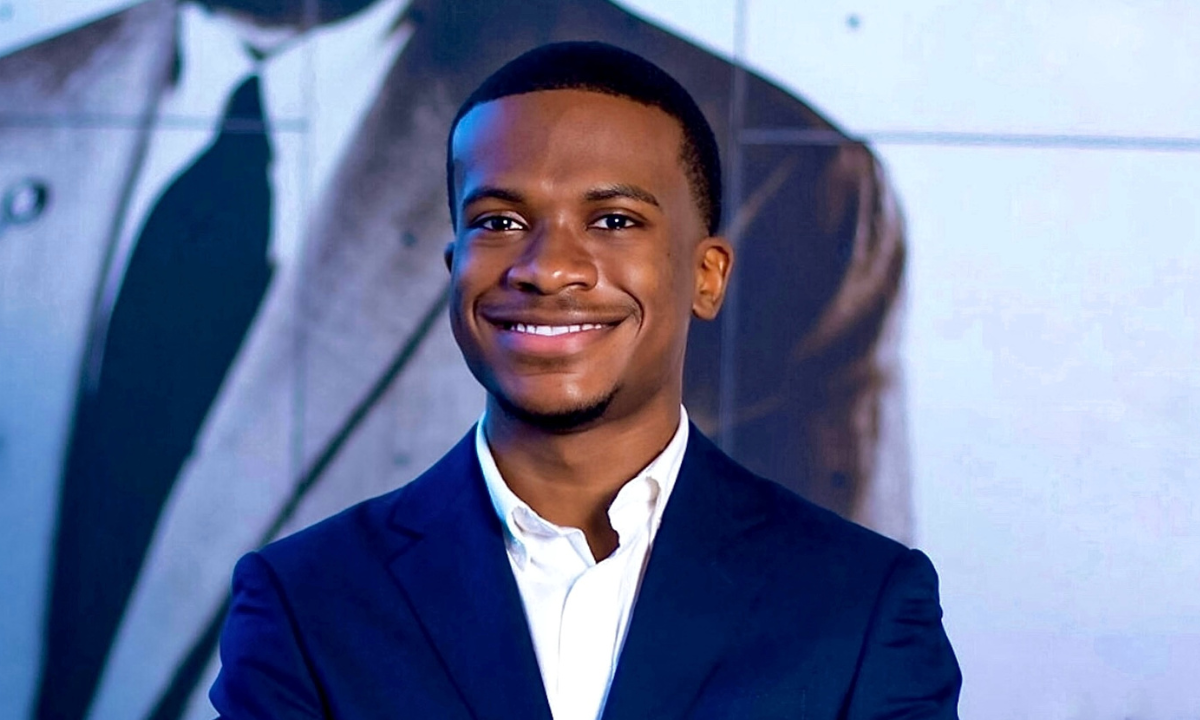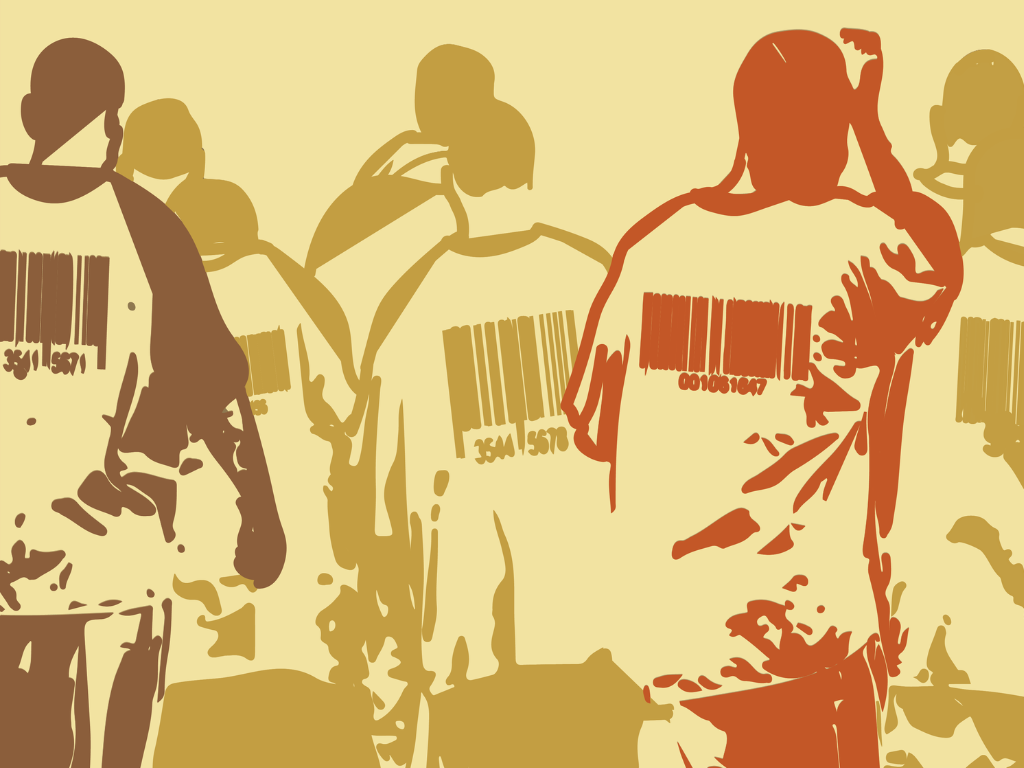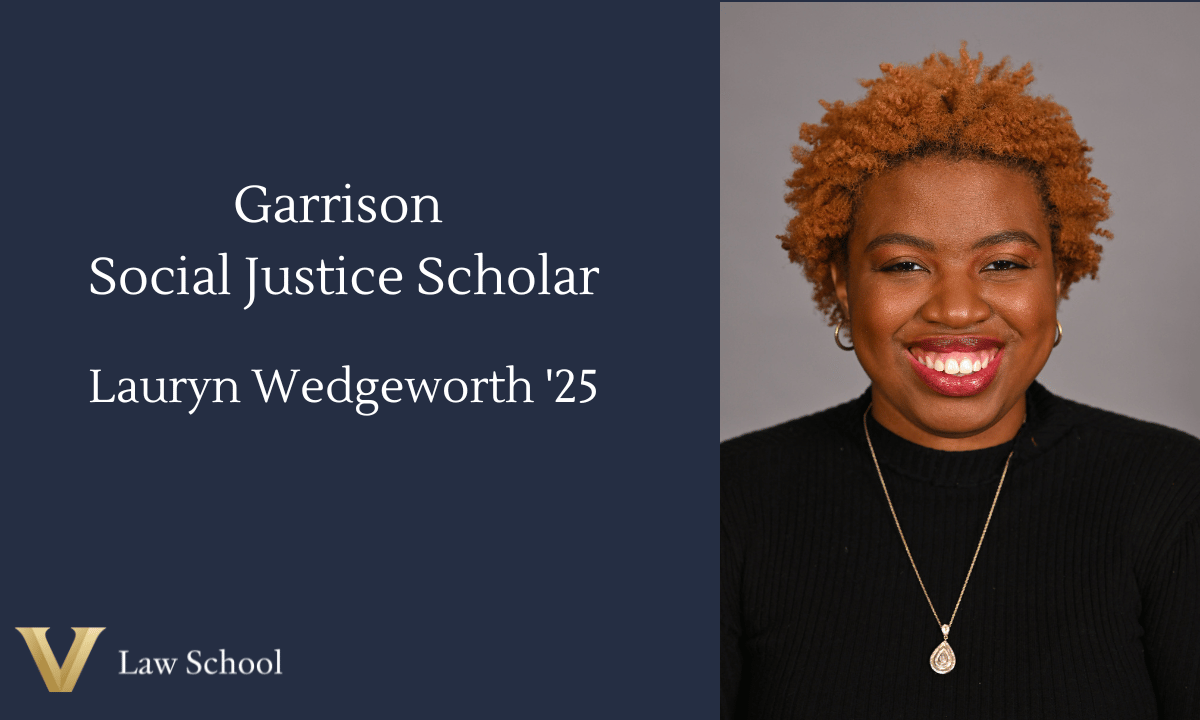By Qiaomin Yang
The Vanderbilt Social Justice Reporter (“VSJR”) hosted its inaugural symposium on March 21, 2024, at Vanderbilt Law School. The Symposium, titled “Capitalism & The Carceral State,” brought together academics, practitioners, and persons with lived experiences from across the country to engage in dialogue and explore how capitalism and the carceral systems intertwine, perpetuate inequalities, and shape the personal experiences of individuals and communities.
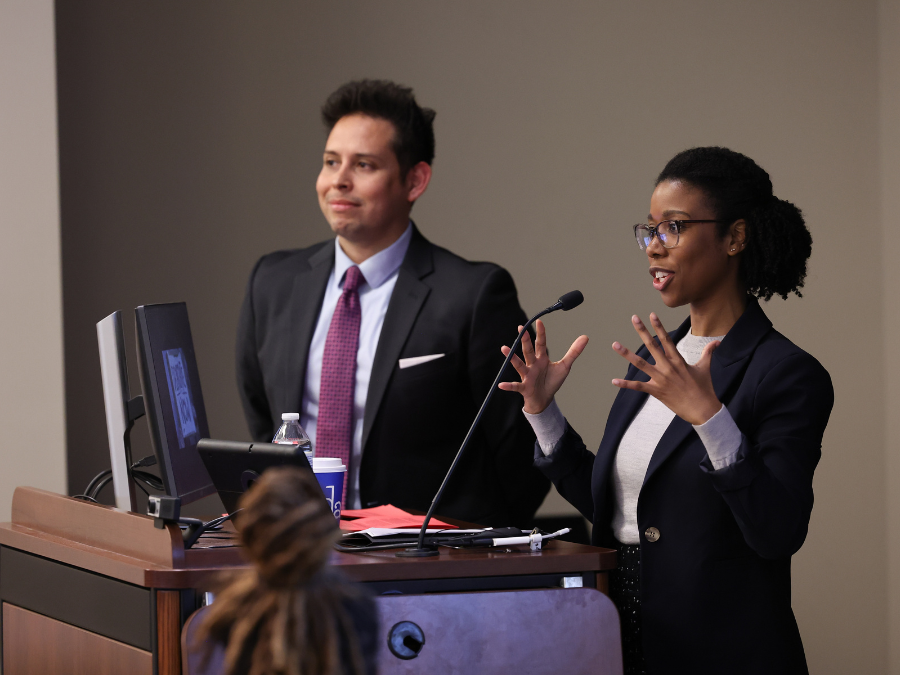 The Symposium commenced with a discussion on “Policing and Oversight: Effects on Unhoused Persons,” led by Constantin Severe, a Public Safety Advisor from the Oregon Governor’s Office. In the discussion, Severe commented, “It can be hard to have a bad day in public.” The discussion was followed by Kiah Duggins, an Attorney from the Civil Rights Corps, who shared insights on “Movement Lawyering for Pretrial Justice: Lessons from Civil Rights Corps.” In the lecture on money bail, Duggins highlighted that pretrial detention, which she referred to as cages, is a harsh, nonmonetary way to ensure court appearance for legally innocent people and destabilize people’s lives, consequently harming public safety. Ronald Simpson-Bey, Executive Vice President of JustLeadershipUSA, then explored the “Costs of Wrongful Conviction.” Simpson-Bey shared his experience of writing his own federal habeas corpus suit over prosecutorial misconduct and winning, then having to wait three years in pretrial status for the state to release him.
The Symposium commenced with a discussion on “Policing and Oversight: Effects on Unhoused Persons,” led by Constantin Severe, a Public Safety Advisor from the Oregon Governor’s Office. In the discussion, Severe commented, “It can be hard to have a bad day in public.” The discussion was followed by Kiah Duggins, an Attorney from the Civil Rights Corps, who shared insights on “Movement Lawyering for Pretrial Justice: Lessons from Civil Rights Corps.” In the lecture on money bail, Duggins highlighted that pretrial detention, which she referred to as cages, is a harsh, nonmonetary way to ensure court appearance for legally innocent people and destabilize people’s lives, consequently harming public safety. Ronald Simpson-Bey, Executive Vice President of JustLeadershipUSA, then explored the “Costs of Wrongful Conviction.” Simpson-Bey shared his experience of writing his own federal habeas corpus suit over prosecutorial misconduct and winning, then having to wait three years in pretrial status for the state to release him.
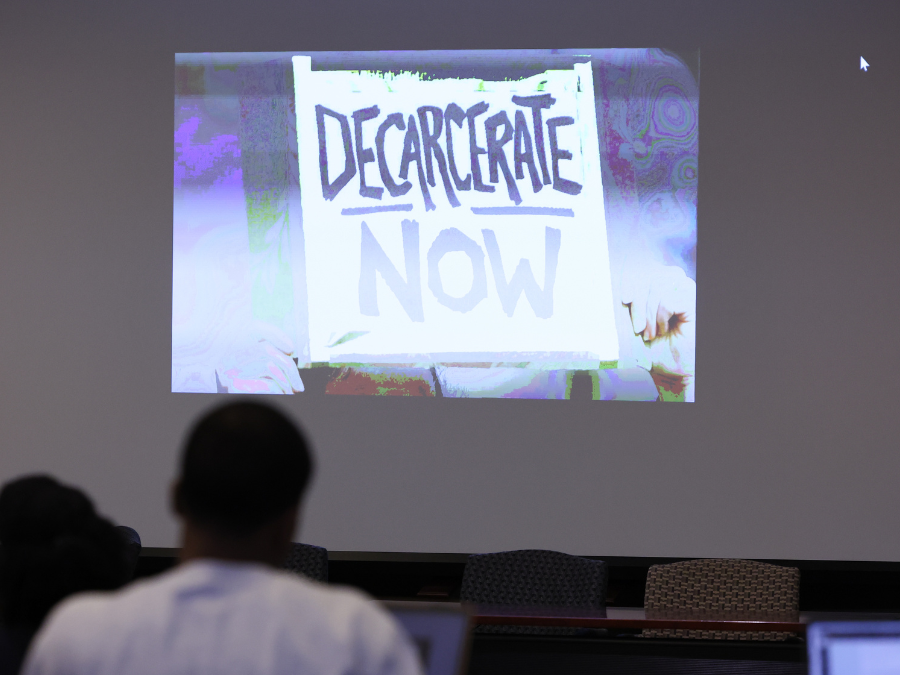 The event’s keynote lecture during lunch hour, “Carceral Secrets and Truths,” was delivered by Andrea Armstrong, a 2023 MacArthur Foundation Fellow and Dr. Norman C. Francis Distinguished Professor of Law at Loyola University New Orleans College of Law. Professor Armstrong presented her research on the conditions of confinement in the South, focusing on the racial dimensions of prison labor practices, healthcare, and high mortality rates. Professor Armstrong’s lecture offered profound reflections on the hidden aspects of the carceral system and its impact on society. For example, prison beds outnumber hospital beds in Louisiana; carceral spaces outnumber colleges in the U.S. During the Q&A session, Professor Armstrong offered an optimistic attitude to change the system and encouraged the legislature to respond.
The event’s keynote lecture during lunch hour, “Carceral Secrets and Truths,” was delivered by Andrea Armstrong, a 2023 MacArthur Foundation Fellow and Dr. Norman C. Francis Distinguished Professor of Law at Loyola University New Orleans College of Law. Professor Armstrong presented her research on the conditions of confinement in the South, focusing on the racial dimensions of prison labor practices, healthcare, and high mortality rates. Professor Armstrong’s lecture offered profound reflections on the hidden aspects of the carceral system and its impact on society. For example, prison beds outnumber hospital beds in Louisiana; carceral spaces outnumber colleges in the U.S. During the Q&A session, Professor Armstrong offered an optimistic attitude to change the system and encouraged the legislature to respond.
The event continued with discussions on various facets of the carceral state. “Costs of Incarceration” by Anna VanCleave, an Associate Professor of Law and Director of the Criminal Defense Clinic at the University of Connecticut School of Law, offered insights on inmate trust accounts and highlighted the pay-to-stay laws and discretionary fines set by prisons for disciplinary infractions. In addition, Calvin John Smiley, an Associate Professor of Sociology from CUNY Hunter College, discussed the prison industrial complex and prisoner reentry industry in “Abolition Reentry: A Case to End the Carceral Continuum.”
Furthermore, “Housing the Decarcerated” by Norrinda Brown, an Associate Professor of Law from Fordham School of Law, highlighted that the U.S. has structured its public housing prioritization models around white people with surgical precision and articulated the importance of prioritizing recently de-carcerated people, who are disproportionately people of color. Finally, the Symposium concluded with a session led by Dawn Deaner, Executive Director of Choosing Justice Initiative, titled “Beyond the Carceral State: Doing Justice Differently.” Deaner concluded the day by leading a conversation with attendees about what justice is.
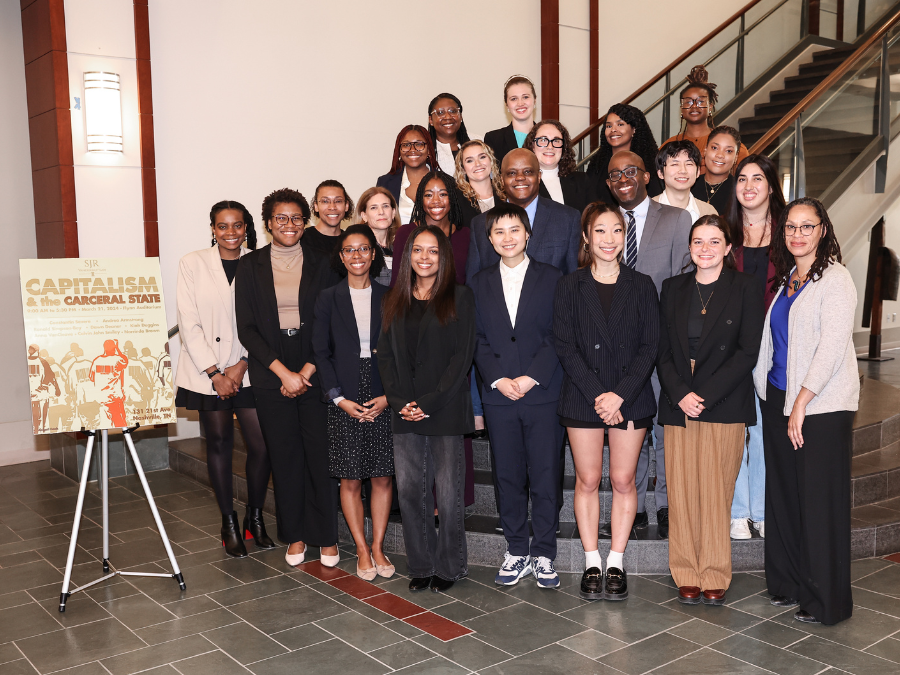
Throughout the Symposium, attendees engaged in dynamic discussions on topics including policing, pretrial detention, conditions of confinement, prison reentry, restorative justice, and the broader implications of capitalism on the carceral system. By bringing together diverse perspectives, the Symposium generated critical insights and inspired action toward addressing systemic inequalities and advancing social justice.
